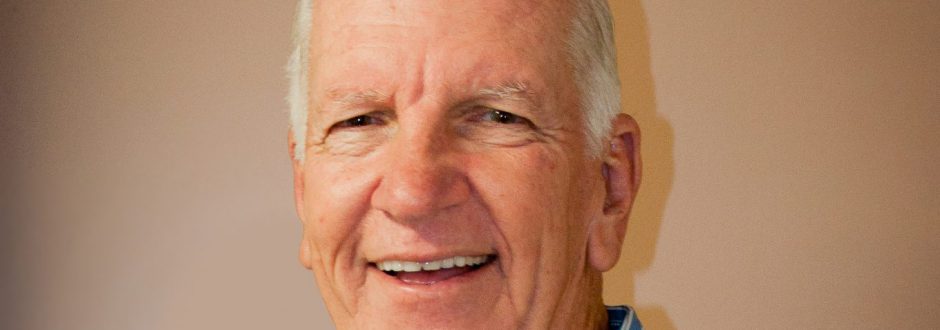“Identity theft is a major crime around the world. In a strangely analogous way, there is concern growing that forces mysterious may even be stealing our Catholic identity. If we had to report such a theft, how would we describe our loss,” asks Garry Everett.
BY Garry Everett
Identity theft is a major crime around the world. It usually involves stealing personal details: name, age, address, social security details; banking information and the like. In a strangely analogous way, there is concern growing that forces mysterious may even be stealing our Catholic identity! If we had to report such a theft, how would we describe our loss?
Almost 15 years ago, the Australian Government received Bringing Them Home: The ‘Stolen Children’ Report. As far as I know, it is the only report ever which made politicians on both sides of the House, weep – such was the sadness of its contents. The report told of the removal of a whole generation of young people from their Indigenous parents, and of the placing of those young people in the care of white people: families, Churches, and Government institutions. However, another reading of the text indicates that what were also stolen were the identities of the young people: the loss of their traditional stories and beliefs; their cultural norms and values; their true sense of self.
There are comparisons to be made here with the notion of Catholic identity: who is trying to steal what? I believe that by focussing on ‘the who’, we can more easily see ‘the what’. Let me elaborate briefly, by naming five ‘whos’.
1. Relativism. Pope Benedict XVI has nominated the chief culprit as relativism. By this he means those beliefs and practices that remove any certainties from our experience. We stand on the slippery slope of ‘anything goes’. What is stolen of course, is the notion of truth, and especially of the “truth that will set you free”.
2. Corporatisation. Many Catholic ministries today are corporatised. In Civil Law they are companies, and in Canon Law they may well be part of new Public Juridic Persons involving the ‘lowerarchy’, that is, those who are neither ordained nor belong to religious congregations or institutes. The Civil Law requirements of corporatisation often place incredible restrictions upon the distinctive ‘Catholic ways’ of doing things. What is eroded is our tradition.
3. Technology has increased dramatically our power to process information, but its insatiable appetite for speed has also removed from our processes, the wonderful gift of discernment. How often we hear the cry today: “I don’t have the time to think”, let alone reflect! We seem to be engaging less and less with the big ideas, and settling for a diet of ‘byte-size’ tidbits. What is in danger of being lost is our Catholic capacity for prayerful, philosophical contemplation which once turned the Dark Ages into light.
4. Competition. Modern society has an altar of success and a high priest called competition. The ‘in’ crowd are those who get to the top; who reap the huge rewards of super salaries and benefits; and whose ways and means are those of win at all costs. When we strive to make this the best Catholic hospital, school, aged care institute, or any other ministry, we are engaged in a worthwhile endeavour. However, if we compete using the wrong standards, we will have surrendered our baptismal call. It will be as though Jesus never said: “When you did it to the least of these, you did it to me”.
5. Fear is perhaps the greatest thief we face. When we fear to dream, to imagine better alternatives, to envisage ways to be more compassionate and inclusive; more forgiving and reconciling, we lose another part of our Catholic identity. We lose that wonderfully constructive tension between tradition and vision. Catholicism is built on two great energies: the centripetal one is the wisdom of the ages, preserved and handed on. The other energy is centrifugal, that of vision, which calls the tradition to do new things. One without the other eventually becomes impotent.
The most common expression used in the Gospels is “do not be afraid”. When used with reference to the notion of Catholic identity, this is good advice. However, Jesus is not inviting us to drop our guard and be lazy, leaving everything to him. He warns us to be attentive to the signs of the times and to keep searching for the lost coin, or the pearl of great price.
One way we can practise this vigilance is to provide extensive and intensive programs of formation for all those who govern, manage or provide Catholic services of any kind. This has been part of the tradition of religious congregations over the centuries. It should not be of lesser importance now, and may in fact require increased priority treatment.
Many of the lay Catholics and those of other faith traditions who are involved in Catholic ministry have not had the sustained formation in the Catholic tradition that our nuns, brothers and priests had. Without such formation, Catholic identity is placed at severe risk of becoming diluted or even of disappearing. But new times demand new ways. What should we do?
We are fortunate that today we have many Catholic agencies who are addressing this question: Australian Catholic University; seminaries; Catholic Education; Catholic Health Australia; Catholic Justice and Peace Commissions; congregations and other Public Juridic Persons, to name a few. What perhaps is needed, over and above these efforts, is to provide a co-ordinated and challenging conversation among these and other agencies aimed at sharing and sustaining the formation opportunities well into the future.
Jesus, in Luke 12:39, warns us that if we knew when the thief was coming, we would be more vigilant. Let us stir ourselves from any soft slumber and exercise a vital vigilance for the sake of the Gospel, for the sake of the Church, and for the sake of our Catholic identity.
